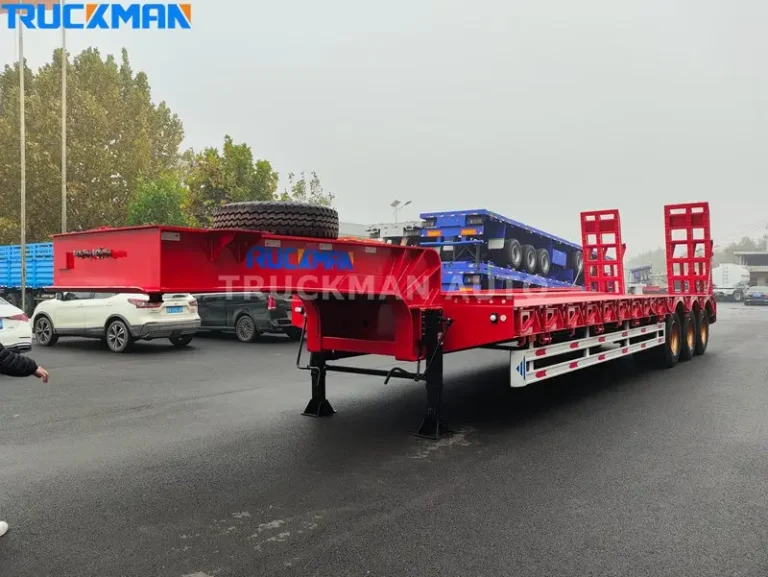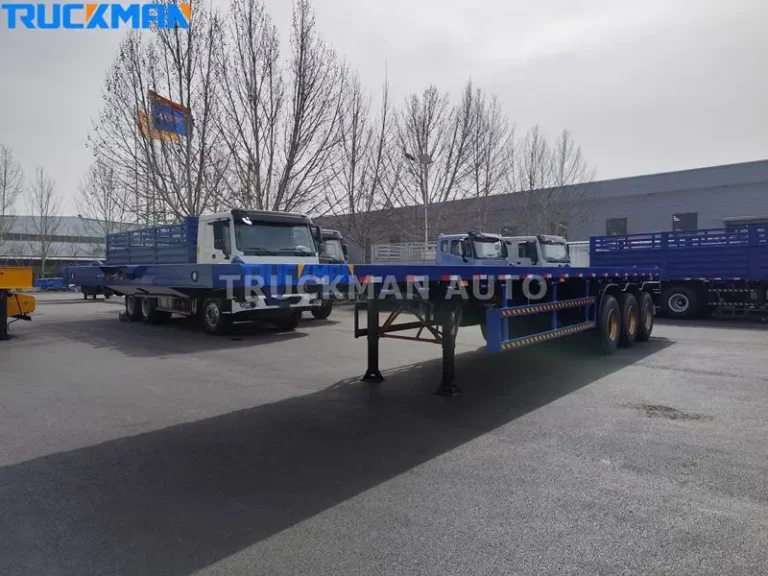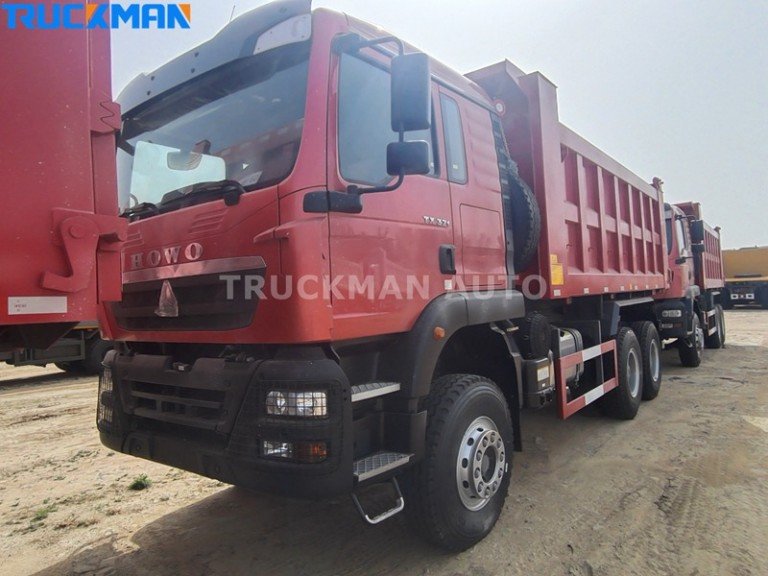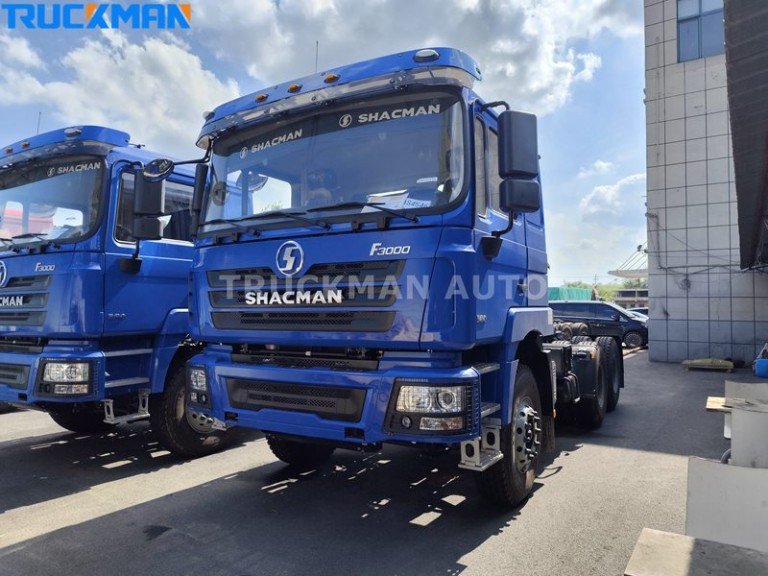At Truckman Automobile, as a leading semi truck trailer manufacturer, we understand the importance of regular maintenance for end dump trailers. It not only ensures safe operation but also improves performance and reduces long-term costs. According to industry data, proactive maintenance can extend trailer life by 15-25% and reduce unexpected downtime by up to 30%. This article provides comprehensive maintenance recommendations to help you protect your investment. Note: These tips apply to most models, but please refer to your user manual for specific specifications.
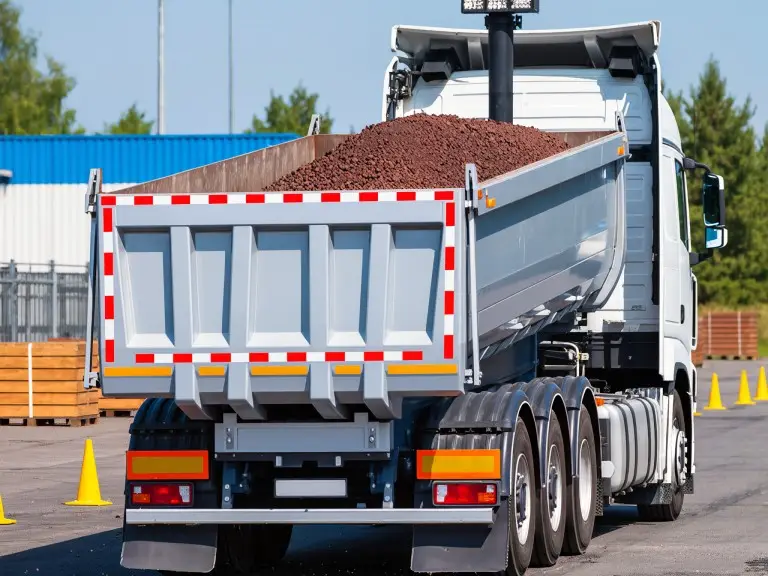
Table of Contents
Truckman Automobile End Dump Trailers
Truckman Automobile’s dump end trailers are renowned for their durability and efficient design, specifically built for heavy-load transportation. Their core components include reinforced steel frames, heavy-duty hydraulic systems, brakes designed for heavy loads, and wear-resistant bed materials. These elements work together to ensure stable operation under harsh conditions. The hydraulic lifting system is particularly critical, containing multiple moving parts that require regular inspection to avoid failures.
The following table outlines key components and their benefits:
| Component | Description | Benefit |
|---|---|---|
| Reinforced Steel Frame | Sturdy and durable frame structure | Enhances overall lifespan and load capacity |
| Heavy-Duty Hydraulic System | Powerful hydraulic cylinders and hose system | Efficient unloading operations |
| Specialized Brakes | Brake components optimized for heavy loads | Ensures safe stopping |
| Wear-Resistant Bed | Bed made from high-strength materials | Resists wear and corrosion |
Essential End Dump Trailer Maintenance Tips
To maximize the trailer’s lifespan, it’s essential to establish a comprehensive maintenance schedule. The following provides detailed guidance from multiple aspects, combining practical steps and tool recommendations. It is recommended to keep a monthly maintenance log to track issues.
Regular Inspections
Regular inspections form the foundation of maintenance, allowing early detection of potential problems. Focus on the overall structure, tires, and undercarriage to ensure there are no cracks, rust, or other damage, especially in the undercarriage area.
- Overall Structure: Inspect the frame, axles, and body weekly for cracks or deformation. Use a flashlight and mirror to check hard-to-reach areas. If rust is found, address it immediately to prevent spreading.
- Tires: Check wear patterns and inflation pressure (refer to the manufacturer’s label, typically 80-100 PSI). Uneven wear may indicate suspension issues; rotate tires every 5,000 miles.
- Lights and Brakes: Ensure all lights and reflectors are clean and functioning properly. Test brake response and check pad thickness (at least 1/4 inch). If brakes feel spongy, repair immediately.
Cleaning and Protection
Cleaning removes corrosive substances like road salt and dirt, preventing rust. Regularly wash the trailer with mild soap and water, and apply protective coatings to exposed metal surfaces.
- Frequent Washing: Wash once a week, or more frequently if exposed to harsh environments (such as salted roads). Use a soft brush and high-pressure water gun to clear undercarriage and wheel well debris.
- Suitable Cleaners: Choose mild soap, water, or cleaners specifically for aluminum surfaces. Avoid acidic products to prevent damage to coatings.
- Anti-Corrosion Measures: After cleaning, apply a rust-inhibiting coating (such as wax-based spray) to exposed metals. Apply a full coating at least twice a year, which can reduce rust risk by 50%.
Hydraulic System Maintenance
The hydraulic system is the core of unloading and requires regular checks to ensure proper fluid levels and no leaks. Improper maintenance can lead to high-pressure buildup and failures.
- Fluid Level Check: Inspect and top up hydraulic fluid weekly (using the manufacturer-recommended type). Add immediately if below the mark.
- Hose Inspection: Check hoses monthly for wear, cracks, or leaks. Replace damaged ones promptly to prevent hydraulic failure.
- Air Bleeding: Bleed air from cylinders weekly to ensure smooth operation.
- Proper Operation: When a load is stuck, lower the dumping mechanism slowly to avoid high-pressure buildup in the cylinders.
Lubrication
Lubricating all moving parts reduces friction and wear, ensuring smooth operation. Use high-quality lubricants and follow the manufacturer’s guidelines.
- Moving Parts: Lubricate hinges, latches, ramps, and jacks weekly (every 50 hours of operation). This prevents sticking and extends component life.
- Wheel Bearings: Use a grease gun to lubricate bearings every 3 months, preferably through a bearing buddy system for easier operation.
General Safety
Safety maintenance is key to preventing accidents. Always prioritize operational standards.
- Safe Operation: Before unloading, ensure the trailer is on level ground with tires securely chocked. Avoid operating on unstable surfaces.
- Air System Exhaust: Before operating the dump gate or cylinders, disconnect air lines and fully exhaust the system to prevent accidental release.
Maintenance Checklist
For ease of use, here is a simple checklist table:
| Task Category | Frequency | Specific Steps | Required Tools |
|---|---|---|---|
| Regular Inspections | Weekly | Inspect structure, tires, lights/brakes | Flashlight, pressure gauge |
| Cleaning and Protection | Weekly/as needed | Wash and apply rust coating | Soap, water gun, coating spray |
| Hydraulic System | Weekly | Check fluid level, hoses, bleed air | Hydraulic fluid, wrench |
| Lubrication | Weekly/50 hours | Lubricate moving parts and bearings | Grease gun, lubricant |
| Safe Operation | Every use | Ensure level ground, exhaust air system | Wheel chocks, safety belt |
Summary
At Truckman Automobile, through this comprehensive maintenance guide, we help you master the essentials of end dump trailer care. From understanding core components like reinforced steel frames and hydraulic systems to implementing regular inspections, cleaning and protection, hydraulic maintenance, lubrication, and safe operations, these steps not only extend equipment life and reduce repair costs but also enhance overall operational efficiency. Our trailers are designed with durability in mind, but only through proactive maintenance can their full potential be realized—imagine your trailer operating reliably for years under harsh conditions, saving you thousands in potential losses.
If you have any questions or need professional customization services, contact Truckman Automobile’s expert team immediately. We are committed to your success—let’s work together to keep your trailer in top condition.
FAQ
How often should I lubricate the moving parts of my dump trailer?
It is recommended to lubricate hinges and pivot points weekly or every 50 hours of operation to prevent wear.
What are the signs of worn brakes on a dump trailer?
These include unusual noises, spongy pedals, or increased stopping distances. Regular inspections can detect these early.
How can I prevent rust on my steel dump trailer?
Frequently clean areas exposed to dirt and moisture, and apply rust-inhibiting layers. Address rust spots immediately.
What is the recommended tire pressure for a dump trailer?
Refer to the manufacturer’s label or manual. Check weekly to ensure safety and even wear.
How can I ensure safe operation of my dump trailer?
Inspect components like brakes and tires, ensure moving parts are well-lubricated. Confirm stability before operation.

